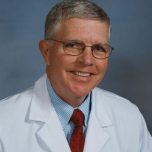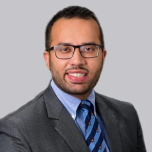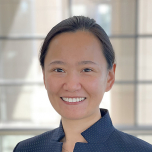Neuromuscular Disorders
General Information
The Neuromuscular Disorders Clinic specializes in the evaluation and the newest treatment of the entire spectrum of neuromuscular disorders. The program deals with the diagnosis and treatment of nerve, plexus, and spinal root injuries and their complications. We also deal with injuries or illnesses of the peripheral autonomic nervous systems, such as familial dysautonomia. Some of the diseases treated include Duchenne's muscular dystrophy, myotonic dystrophy, polymyositis, myasthenia gravis, peripheral neuropathy, and amyotrophic lateral sclerosis (ALS). The Botulinum Toxin (Botox) Treatment Clinic at the University of Kentucky began in 1989. The neurologists have extensive experience with treating a wide range of conditions with botulinum toxin, in particular spasmodic torticollis (cervical dystonia).
Treated Disorders Include:
Nerve Disorders
- Guillain-Barre Syndrome
- Charcot-Marie-Tooth
- Dejerine-Sottas
- Carpal Tunnel Syndrome
- Dysautonomias
- Mononeuropathy Multiplex
Nerve Disorders
- Guillain-Barre Syndrome
- Charcot-Marie-Tooth
- Dejerine-Sottas
- Carpal Tunnel Syndrome
- Dysautonomias
- Mononeuropathy Multiplex
Muscle Disorders
- Polymyositis
- Dermatomyositis
- Muscular Dystrophy
- Myotonic Dystrophy
- Limb-girdle MD
- Facio-scapulohumeral MD
Muscle Disorders
- Polymyositis
- Dermatomyositis
- Muscular Dystrophy
- Myotonic Dystrophy
- Limb-girdle MD
- Facio-scapulohumeral MD
Motor Neuron Disorders
- Post Polio Syndrome
- Amyotrophic Lateral Sclerosis (Lou Gehrig's Disease)
- Spinal Muscular Atrophy
Motor Neuron Disorders
- Post Polio Syndrome
- Amyotrophic Lateral Sclerosis (Lou Gehrig's Disease)
- Spinal Muscular Atrophy
Neuromuscular Junction Disorders
- Myasthenia Gravis
- Lambert-Eaton Syndrome
- Botulism
Neuromuscular Junction Disorders
- Myasthenia Gravis
- Lambert-Eaton Syndrome
- Botulism
Other
- Blepharospasm
- Writer's Cramp
- Spasmodic Torticollis (Cervical Dystonia)
- Spasmodic Dysphoni
Other
- Blepharospasm
- Writer's Cramp
- Spasmodic Torticollis (Cervical Dystonia)
- Spasmodic Dysphoni
Current ALS Research Studies at the University of Kentucky
Sign up here to keep up with the latest information on research and clinical care at the University of Kentucky.
Enrolling ALS Clinical Trials
Trial of Memantine for ALS (TAME)
Full Trial Name: Therapy in Amyotrophic Lateral Sclerosis (TAME).
Trial Objective: Aims to test whether the drug memantine slows ALS.
Quick Facts:
- Nine months study.
- Consists of five research clinic visits at UK, and six phone calls.
- Double-blinded, randomized, placebo-controlled trial. Randomization is in a 2:1 ratio (66% of patients will get the active drug).
- This study is recruiting patients with ALS with a forced vital capacity (FVC) greater than or equal to 60% of predicted value
- Each study visit will last around 2.5 hours, and each phone call will last around 15 minutes.
- No open label extension is offered at the end of the study (a period when all study participants are put on the study drug).
Sponsor: University of Kansas Medical Center (KUMC)
Enrolling ALS Clinical Trials
Trial of Memantine for ALS (TAME)
Full Trial Name: Therapy in Amyotrophic Lateral Sclerosis (TAME).
Trial Objective: Aims to test whether the drug memantine slows ALS.
Quick Facts:
- Nine months study.
- Consists of five research clinic visits at UK, and six phone calls.
- Double-blinded, randomized, placebo-controlled trial. Randomization is in a 2:1 ratio (66% of patients will get the active drug).
- This study is recruiting patients with ALS with a forced vital capacity (FVC) greater than or equal to 60% of predicted value
- Each study visit will last around 2.5 hours, and each phone call will last around 15 minutes.
- No open label extension is offered at the end of the study (a period when all study participants are put on the study drug).
Sponsor: University of Kansas Medical Center (KUMC)
Enrolling Studies: Clinical Research to Understand ALS
Residential Survey
Recruiting: ALS patients residing in Kentucky, Ohio, Indiana, West Virginia, and Tennessee.
Full Study Name: Survey of Residential History in Amyotrophic Lateral Sclerosis (ALS) Patients Residing in Kentucky, Ohio, Indiana, West Virginia, and Tennessee.
Study Objective: The purpose of this study is to see whether or not there are certain geographic regions within the states of Kentucky, Ohio, Indiana, West Virginia, and Tennessee that are associated with an increased risk of developing ALS.
Quick Facts:
- This study is a pencil and paper study.
- Done only once, from the comfort of your home.
- Takes about two hours to complete, and can be done with the help of a caregiver.
- No drugs or devices will be used in this study.
- Patients will be asked to write all places of residence and the primary occupation while living at that residence, and list any area of concern including airports; military bases; chemical, petroleum, or pesticide facilities; etc.
- After the residential survey form is completed, patients will mail it to the research team in the stamped envelope that will be provided to them.
Sponsor: Edward Kasarskis, MD, PhD
The AWARE Study
Recruiting: ALS patients (and their caregivers) who exclusively consume oral diet and attend multidisciplinary ALS clinic at UK.
Full Trial Name: Impact of Gastrostomy on Swallowing-Related Quality of Life in Patients with Amyotrophic Lateral Sclerosis and their Caregivers.
Trial Objective: The purpose of this study is to test the effect of feeding tube (PEG) placement on quality of life (QOL) of patients with ALS and their caregivers.
Quick Facts:
- This study is a pencil and paper study that is done during multidisciplinary ALS clinic visits for a number of visits.
- No drugs or devices will be used in this study.
- Patients and their caregivers will be given three questionnaires to fill about how problems in swallowing is affecting their quality of life before and after PEG placement.
- Filling these questionnaires takes about 45 minutes, and will continue each visit until collecting a satisfactory amount of data.
Sponsor: Debra Suiter, PhD
Enrolling Studies: Clinical Research to Understand ALS
Residential Survey
Recruiting: ALS patients residing in Kentucky, Ohio, Indiana, West Virginia, and Tennessee.
Full Study Name: Survey of Residential History in Amyotrophic Lateral Sclerosis (ALS) Patients Residing in Kentucky, Ohio, Indiana, West Virginia, and Tennessee.
Study Objective: The purpose of this study is to see whether or not there are certain geographic regions within the states of Kentucky, Ohio, Indiana, West Virginia, and Tennessee that are associated with an increased risk of developing ALS.
Quick Facts:
- This study is a pencil and paper study.
- Done only once, from the comfort of your home.
- Takes about two hours to complete, and can be done with the help of a caregiver.
- No drugs or devices will be used in this study.
- Patients will be asked to write all places of residence and the primary occupation while living at that residence, and list any area of concern including airports; military bases; chemical, petroleum, or pesticide facilities; etc.
- After the residential survey form is completed, patients will mail it to the research team in the stamped envelope that will be provided to them.
Sponsor: Edward Kasarskis, MD, PhD
The AWARE Study
Recruiting: ALS patients (and their caregivers) who exclusively consume oral diet and attend multidisciplinary ALS clinic at UK.
Full Trial Name: Impact of Gastrostomy on Swallowing-Related Quality of Life in Patients with Amyotrophic Lateral Sclerosis and their Caregivers.
Trial Objective: The purpose of this study is to test the effect of feeding tube (PEG) placement on quality of life (QOL) of patients with ALS and their caregivers.
Quick Facts:
- This study is a pencil and paper study that is done during multidisciplinary ALS clinic visits for a number of visits.
- No drugs or devices will be used in this study.
- Patients and their caregivers will be given three questionnaires to fill about how problems in swallowing is affecting their quality of life before and after PEG placement.
- Filling these questionnaires takes about 45 minutes, and will continue each visit until collecting a satisfactory amount of data.
Sponsor: Debra Suiter, PhD
Upcoming ALS Clinical Trials
HEALEY ALS Platform Trial
Full Trial Name: HEALEY ALS Platform Trial
Trial Objective: The HEALEY Platform Trial aims to test multiple drugs to slow ALS
Quick Facts:
- This platform will start with three different drugs (Zilucoplan, Verdiperstat, and CNM-Au8)
- Each patient will get either one of the three drugs or a placebo. Randomization is in a 4:1 ratio (75% of patients will get the active drug).
- 8-9 months study, followed by optional open label extension (during open label extension, all participants receive the study drug).
- Consists of about seven research clinic visits at UK, and four phone calls.
- This study is recruiting patients with ALS with a slow vital capacity (SVC) greater than or equal to 50% of predicted value.
Sponsor: The Sean M. Healey & AMG Center for ALS at Mass General, in partnership with TackleALS.
The CHAMPION-ALS Trial
Full Trial Name: A Phase 3, Double-Blind, Randomized, Placebo-Controlled, Parallel Group, Multicenter Study With an Open-Label Extension to Evaluate the Efficacy and Safety of Ravulizumab in Patients With Amyotrophic Lateral Sclerosis (ALS).
Trial Objective: Aims to test the safety and ability of Ravulizumab to slow ALS.
Quick Facts:
- 13 months study, followed by an open label extension period that will continue for up to two years, total of three years. During open label extension, all participants receive the study drug (Rvulizumab).
- Double blinded, randomized, placebo-controlled trial. Randomization is in a 2:1 ratio (66% of patients will get the active drug).
- Drug treatment is taken intravenously every eight weeks.
- Consists of 25 research clinic visits at UK, and several phone calls.
- This study is recruiting patients with ALS with a Slow Vital Capacity (SVC) greater than or equal to 65% of predicted value
Sponsor: Alexion Pharmaceuticals
Upcoming ALS Clinical Trials
HEALEY ALS Platform Trial
Full Trial Name: HEALEY ALS Platform Trial
Trial Objective: The HEALEY Platform Trial aims to test multiple drugs to slow ALS
Quick Facts:
- This platform will start with three different drugs (Zilucoplan, Verdiperstat, and CNM-Au8)
- Each patient will get either one of the three drugs or a placebo. Randomization is in a 4:1 ratio (75% of patients will get the active drug).
- 8-9 months study, followed by optional open label extension (during open label extension, all participants receive the study drug).
- Consists of about seven research clinic visits at UK, and four phone calls.
- This study is recruiting patients with ALS with a slow vital capacity (SVC) greater than or equal to 50% of predicted value.
Sponsor: The Sean M. Healey & AMG Center for ALS at Mass General, in partnership with TackleALS.
The CHAMPION-ALS Trial
Full Trial Name: A Phase 3, Double-Blind, Randomized, Placebo-Controlled, Parallel Group, Multicenter Study With an Open-Label Extension to Evaluate the Efficacy and Safety of Ravulizumab in Patients With Amyotrophic Lateral Sclerosis (ALS).
Trial Objective: Aims to test the safety and ability of Ravulizumab to slow ALS.
Quick Facts:
- 13 months study, followed by an open label extension period that will continue for up to two years, total of three years. During open label extension, all participants receive the study drug (Rvulizumab).
- Double blinded, randomized, placebo-controlled trial. Randomization is in a 2:1 ratio (66% of patients will get the active drug).
- Drug treatment is taken intravenously every eight weeks.
- Consists of 25 research clinic visits at UK, and several phone calls.
- This study is recruiting patients with ALS with a Slow Vital Capacity (SVC) greater than or equal to 65% of predicted value
Sponsor: Alexion Pharmaceuticals
Attending Faculty
Contact and Social Media
Contact the ALS Tea
Ghadah.Karasneh@uky.edu
(859) 562-2324





